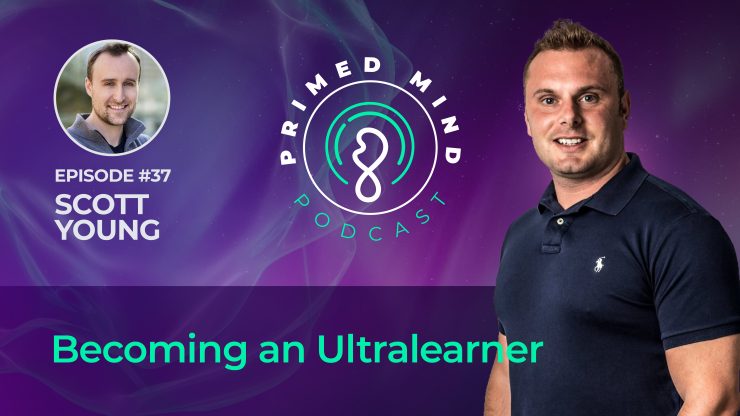***If you’ve enjoyed this episode of Elliot Roe’s A-Game Advantage, please subscribe, rate, and leave a review on iTunes to help spread the word about the show. Thanks!***
Ready To Find Your A-Game Advantage? Click Here To Download Elliot Roe’s Primed Mind App
In this episode, Scott Young, the author of the bestselling book Ultralearning, explains the difference between traditional learning and ultralearning. Scott describes the qualities of an ultralearner and breaks down what we must do to activate knowledge. Elliot and Scott discuss why it’s important to be direct and why we lack the ability to transfer our knowledge from the classroom to real life. Listen in to hear the steps you can take to become an ultralearner so you can learn and use whatever you choose.
Time Stamped Show Notes
[02:00] – Introducing Scott, the bestselling author of Ultralearning
- 02:50 – He lived in France and met an ultrarunner; he struggled to learn French and met someone who learned it much faster
- 03:45 – He found that the philosophy around learning is what makes the difference
[04:30] – What makes someone an ultralearner
- 04:32 – They take on self-directed learning projects and have an eye for doing things as effectively as possible
[05:45] – A glimpse into the book’s content
- 05:55 – The easiest things don’t make big differences; ultralearning requires a deliberate intention to learn something difficult
- 06:45 – People have difficulty with “transfer,” which is the ability to transfer knowledge from one utilization to another
- 08:00 – Successful learners identify what they want to be good at early on so they can build real skills that transfer from the start
- 10:30 – Directness matters in order to activate knowledge; Scott gives an example of basic algebra in real life not being activated
[12:55] – How Scott has personally used ultralearning methodologies
- 13:00 – In projects with a specific end goal; you tailor your approach to your desired result
- 14:30 – As a culture, we teach broad ideas that are relevant to a wide variety of topics
[15:30] – How the educational system is flawed
- 16:00 – General purpose education doesn’t work; apprenticeships are closer to how we should be learning
[16:50] – On the emotional side of learning
- 17:20 – Strong emotional reactions can embed information; this can be good and bad
[17:30] – On traveling and not speaking English
- 19:00 – He and his friend embarked on a year without English while traveling to four countries to immerse themselves in learning languages
[21:10] – On the time it takes to learn
- 21:20 – The book’s principles don’t require a ton of time to implement
[21:55] – Advice for someone who wants to ultralearn
- 22:30 – Google the best way to learn what you specifically want to learn, set your goal, structure your project, and be direct
- 24:35 – Find mentors and make sure what you’re learning will transfer
- 26:30 – Learning underlies everything
[28:30] – Learning as a test of the ego
- 28:55 – Choosing the easy path over the difficult one protects the ego but isn’t the most effective way to actually learn something; you must get uncomfortable
- 29:00 – People aren’t aware of the psychological research that proves that the way we learn in school isn’t the most effective
3 Key Points
- Tailor the way you learn to your specific goal.
- The easiest path isn’t always the most effective.
- Be deliberate and direct.
Contact/Resources
- Primed Mind – Elliot’s Mindset Coaching App
- Elliot’s Mindset & Performance Training Exploration Survey
- Scott’s Website
- Scott’s Book – Ultralearning

